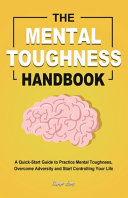

Mental toughness is often defined as the ability to remain resilient and focused under pressure. This concept is crucial for success in various fields, including sports, business, and personal development. The book emphasizes that mental toughness is not an innate trait but a skill that can be developed through practice and perseverance. It outlines the components of mental toughness, which include confidence, control, commitment, and challenge. The authors provide strategies for assessing one's mental toughness and offer exercises to enhance these attributes. Understanding mental toughness is the foundation for building resilience, as it helps individuals to cope with stress, overcome obstacles, and maintain a positive mindset even in adverse situations.
Continue readingGoal setting is a powerful tool for fostering mental toughness. The book highlights the significance of setting SMART goals—Specific, Measurable, Achievable, Relevant, and Time-bound. By establishing clear goals, individuals can create a roadmap for success that provides direction and motivation. The authors stress that mental toughness is closely linked to the ability to set and pursue meaningful goals, as it encourages individuals to push through challenges and maintain focus on their objectives. The book also discusses the importance of flexibility in goal setting, allowing for adjustments as circumstances change, which is a key aspect of mental resilience.
Continue readingA growth mindset, as opposed to a fixed mindset, is essential for cultivating mental toughness. The book explains that individuals with a growth mindset believe that their abilities can be developed through dedication and hard work. This perspective fosters resilience and a love for learning, which are critical components of mental toughness. The authors provide techniques for shifting from a fixed to a growth mindset, including embracing challenges, learning from criticism, and celebrating the success of others. By adopting a growth mindset, individuals can better navigate setbacks and view failures as opportunities for growth rather than as insurmountable obstacles.
Continue readingEmotional regulation is a key aspect of mental toughness. The book discusses how the ability to manage emotions effectively can significantly impact performance and decision-making. It provides strategies for recognizing and understanding one's emotions, as well as techniques for controlling emotional responses in high-pressure situations. The authors emphasize the importance of mindfulness and self-awareness in this process, encouraging readers to practice techniques such as deep breathing, visualization, and positive self-talk. By mastering emotional regulation, individuals can maintain composure and focus, enabling them to perform optimally even in challenging circumstances.
Continue readingResilience is a core component of mental toughness, and the book emphasizes the role of adversity in building this quality. The authors argue that facing and overcoming challenges can strengthen mental toughness and prepare individuals for future obstacles. They offer insights into reframing negative experiences and learning from failures, which can foster resilience. The book also discusses the importance of support systems, including friends, family, and mentors, in helping individuals navigate through tough times. By embracing adversity and viewing it as a learning opportunity, readers can enhance their resilience and develop a stronger sense of mental toughness.
Continue readingSelf-discipline is a crucial element of mental toughness, as it enables individuals to stay committed to their goals and resist distractions. The book outlines techniques for developing self-discipline, including creating structured routines, setting priorities, and practicing delayed gratification. The authors emphasize that self-discipline is not about strict control but rather about making conscious choices that align with one's long-term objectives. By cultivating self-discipline, individuals can enhance their mental toughness and improve their ability to stay focused and motivated, even when faced with temptations or setbacks.
Continue readingPositive thinking is a vital aspect of mental toughness, as it influences how individuals perceive challenges and setbacks. The book discusses the impact of a positive mindset on performance and overall well-being, highlighting the benefits of optimism and positive self-talk. The authors provide practical techniques for fostering a positive outlook, such as gratitude practices, affirmations, and visualization exercises. By cultivating a positive mindset, individuals can enhance their mental toughness, improve their resilience, and approach challenges with confidence and determination.
Continue readingThe reading time for The Mental Toughness Handbook depends on the reader's pace. However, this concise book summary covers the 7 key ideas from The Mental Toughness Handbook, allowing you to quickly understand the main concepts, insights, and practical applications in around 24 min.
The Mental Toughness Handbook is definitely worth reading. The book covers essential topics including Understanding Mental Toughness, The Importance of Goal Setting, Developing a Growth Mindset, providing practical insights and actionable advice. Whether you read the full book or our concise summary, The Mental Toughness Handbook delivers valuable knowledge that can help you improve your understanding and apply these concepts in your personal or professional life.
The Mental Toughness Handbook was written by Refugio Lopez.
If you enjoyed The Mental Toughness Handbook by Refugio Lopez and want to explore similar topics or deepen your understanding, we highly recommend these related book summaries:
These books cover related themes, complementary concepts, and will help you build upon the knowledge gained from The Mental Toughness Handbook. Each of these summaries provides concise insights that can further enhance your understanding and practical application of the ideas presented in The Mental Toughness Handbook.